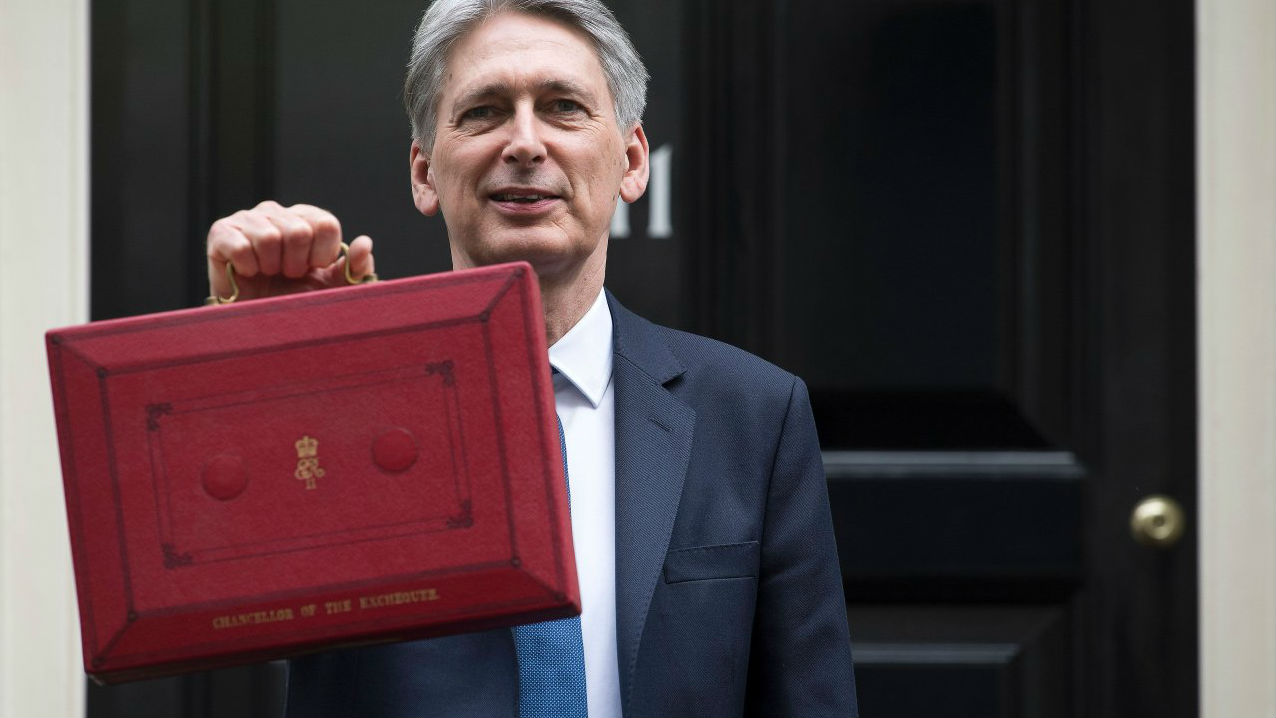U.K. Budget Mostly Welcomed by Industry

The U.K. Chancellor of the Exchequer Philip Hammond has delivered his Autumn Budget, saying that it allows businesses to invest with confidence.
Offshore Tax History
The budget includes a tax measure that is expected to unlock further investment in the U.K. North Sea by enabling more assets to change hands and allow new owners to provide fresh investment in many mature oil and gas fields. Currently existing owners of oil and gas fields are unable to pass their tax history onto a buyer. This means the buyer perceives the field to be less attractive commercially, partly because they are unlikely to be able to access the same level of tax relief than the current owner when decommissioning. Enabling the transfer of tax history allows the purchaser to value the asset on a similar basis to the vendor and removes a significant barrier to asset trading.
Deirdre Michie, Chief Executive of Oil & Gas UK, said: “We very much welcome the Chancellor’s action to enable the implementation of transferable tax history. This is a vital step that can bring in new investment to increase recovery from existing fields and fund fresh investment which is key to generating activity for our hard-pressed supply chain. It will also help extend the lives of many mature fields and postpone decommissioning.”
She says there has been a number of deal announcements in the basin over the last year, mostly for less mature assets, which have been extremely complicated and taken a long time to negotiate. “This tax measure should help complete deals more quickly and in a more efficient way.”
The new tax measure is intended to be effective by November 2018.
Seafarer Training
Maritime UK says the Budget is notably disappointing on seafarer training as the Chancellor did not announce funding for industry’s SMarT plus proposals. The industry trains around 800 new cadets each year, but this could increase to 1,200 under the proposals that would see shipowners commit to employing cadets after their training is completed. Major employers including Shell and Carnival have already committed to the scheme.
“Without investment in the SMarT scheme, which delivers a return of £4.80 to the nation’s GDP for every £1 the government spends, U.K. maritime could be at risk as the country fails to support the training of future seafarers,” says Maritime UK.
“Professional services, in which the U.K. currently leads the world, rely heavily upon former seafarers, whether in legal, insurance, broking or finance. With a number of maritime service companies weighing up their future in the U.K. post-Brexit, it is vital that further negative conditions – such as a reduced supply of skilled and experienced labor – do not add detrimentally to those considerations.”
Maritime UK did, however, welcome the announcement of £30m funding for digital courses using artificial intelligence. The organization is currently developing a Skills Strategy which will consider the likely future labor needs of a sector facing this technological change. “We hope the fund will allow for work to assess the new skills required as ships become increasingly automated.”
Maritime UK also welcomed the Chancellor’s announcement that the National Infrastructure Commission will initiate a new study into the future of freight. Covering congestion, environment and new technologies, the study will help identify the actions necessary to increase productivity, efficiency and the competiveness of the U.K.’s freight supply chain.
Stability for shipping
International accountant and shipping adviser Moore Stephens says the Budget preserves a stable tax regime for shipping. While there are no new developments relating specifically to the shipping industry in the Budget, there are some items worthy of note, says the company. Under current rules, where a company realizes a capital gain, the original cost will be adjusted for an inflation allowance. This allowance will now be frozen from January 1, 2018.
Meanwhile, the R&D tax credit will be increased from 11 to 12 percent. R&D is interpreted widely, and this may be of interest, for example, to suppliers to the offshore sector carrying out research and development activities or companies developing software.
Moore Stephens tax partner Sue Bill says: “Once again it is a case of a U.K. Budget where little or no specific maritime-related news is good news for the U.K. shipping sector, while the offshore industry has been given some further, welcome help.”
